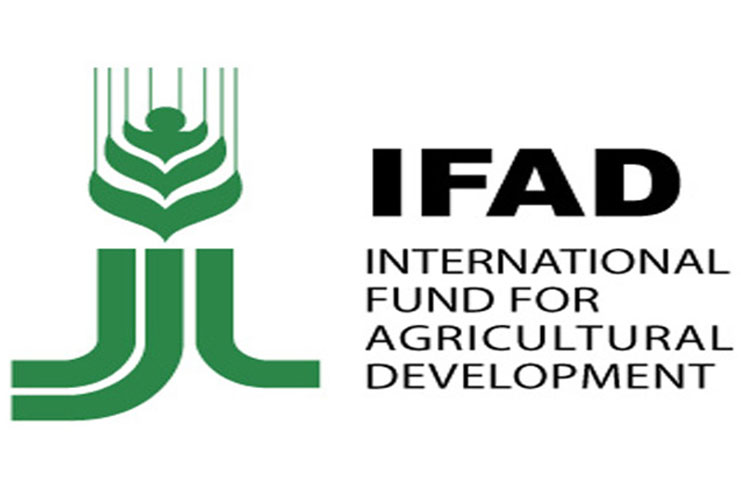KHALIDA BOUZAR: THE WORLD IS FACING AN UNPRECEDENTED CHALLENGE; WE ARE BATTLING AGAINST TIME
It has been three weeks since COVID-19 has drastically altered the daily lives of IFAD staff headquartered in Rome and stationed around the world. Scientists and governments around the world agree that one of the ways we can stop the virus from spreading is physical distancing. Yet the distancing measures needed to contain the coronavirus outbreak are slowing down the world’s economic engine, and this will have a tremendous impact on the global economy, with the most fragile countries and most vulnerable populations paying the highest toll.
In a world that is slowing down, poverty will accelerate, and hunger will follow. In the Arab world alone, ESCWA forecasts that as a direct result of the outbreak, the number of poor will increase by 8.3 million, no less than 1.7 million jobs will be lost in 2020, water will become scarcer – and hunger might consequently take more lives than the virus.
In a world that is slowing down, our commitment is increasing...
The whole of IFAD’s Near East, North Africa and Europe division (NEN) meets more regularly than ever, every week, to catch up on the work that is being carried on and to support each other in this difficult time, in the best team spirit. Virtual meetings allow us to work closer, even if physically far apart. Only by working closely together can we find a way to serve the rural poor in such an unprecedented context.

Even as the virus spreads fast, we need to act even faster. We are working tirelessly to mobilize our resources in a quicker and more efficient way, in order to support governments and rural people in their struggle against the effects of the outbreak. After an initial slowly increasing curve of virus propagation, we see a concerning increase of cases all over the Near East and North Africa, in Central Asia and in Europe. Egypt, Morocco and Turkey are among the most impacted countries, so far. At the same time, reading about countries seemingly not impacted by the virus, like Libya, Syria and Yemen, is not always good news. In fact, fragile and conflict-affected countries might not be able to carry out COVID-19 tests, given that their health care systems are already under tremendous pressure. We are striving to re-engage in these countries, who now find themselves threatened by both the endemic volatile security situation and the coronavirus pandemic.
We are battling against time to find ways to provide adequate responses to governments’ requests and to continue sustaining livelihoods in rural areas. It is obvious that business as usual is not an option: we need to be innovative, agile and flexible. The Near East, North Africa and Europe division spares no efforts to ensure that business continues, even though our ability to act in the region has been impacted by lockdowns and other restrictions of movement. In our Istanbul sub-regional Hub, for example, all staff are teleworking – some from their home countries of Armenia, Finland, Turkey and Sweden. The Cairo Hub is now operating remotely, following the strict security measures imposed by the Government of Egypt, including night curfew and closure of services. Similarly, the Country Office in Morocco has been temporarily closed in light of the lockdown.
Despite all the obstacles the COVID-19 outbreak is putting in our path, IFAD will continue to work relentlessly, recasting our business model to better cope with the new challenges. The measures being discussed – falling within IFAD’s mandate and projects’ scopes – entail reinforcement, scaling up or adaptation of existing activities, and range from Government-led marketing of agricultural produce and input supply to ensure food production, more favourable access to rural financing, scaling up digital agriculture through E-commerce, restructuring projects etc...

We are doing our best to avoid business disruption by engaging in ministerial-level dialogues and continued follow-ups with project management units, including remote supervision of projects in areas where local conditions allow field work to be carried out by local consultants. So far, we have confirmed several remote missions that will be virtually fielded. Not being able to travel has also given us the opportunity to focus on non-lending activities and to develop remote capacity-building for our project staff.
The world is facing an unprecedented challenge. Today, our work is much needed by the millions of vulnerable people who will likely carry the heaviest burdens of the outbreak – and of the economic crisis – on their shoulders. But, just like any other challenge, it can be overcome by joining our efforts. Working together for a common goal is our strength, and despite all the difficulties that come with this new “quotidianity” we have to live in, we will continue serving the rural poor with full commitment. We will do everything to leave no one behind.
By Khalida Bouzar
www.ifad.org
Comments
Post a Comment